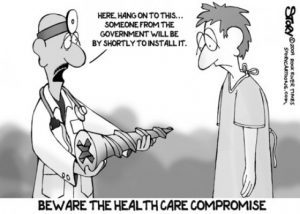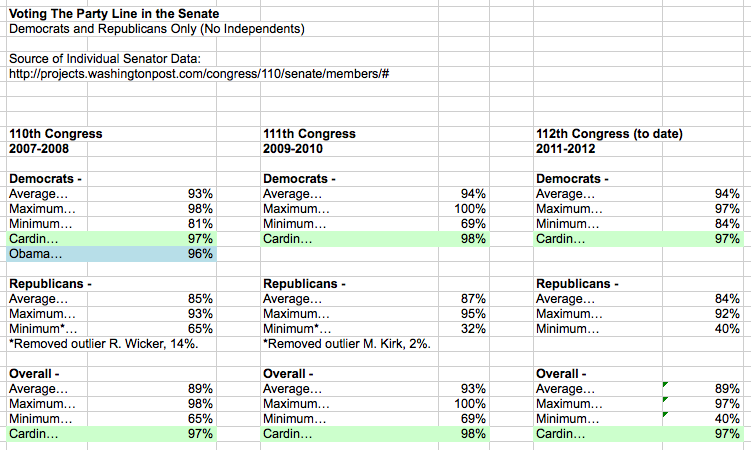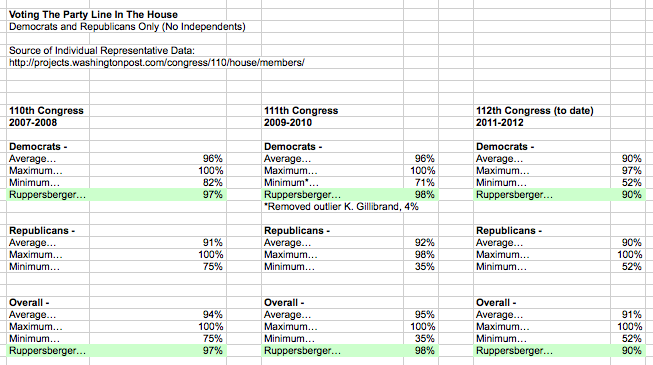 Friday, July 6, 2012
Friday, July 6, 2012
Compromise. Is there really any such thing? Seriously, is there? My wife wants to paint the room green. I want to paint it blue. Does compromise mean agreeing to paint it blue-green which neither of us likes? Or does it mean that one of us concedes to the other this time, in return for getting his or her way on some other matter of equal or less importance? This example is trivial but, in Washington, coming to a mutually acceptable agreement can be a messy and sometimes outright unpleasant, counter-productive process. Picking a color to paint a room is one thing. What happens when the issue is as important, complex and politically charged as health care legislation or what to do about the economy?
Can 435 people in the House or 100 in the Senate really agree on anything and, if they do, will it be any good? Will the best or the worst of opposing points of view survive the process of compromise, or will the final product just stink?
The answer is, “It depends.” It depends upon the personalities, intelligence and strength of character of the representatives, upon the courage of their party leaders and upon the pressures they’re under from sources of campaign financing. Most importantly, it depends upon how the people we elect define themselves. Do they put their party’s ideology first, or their constituents and their country? Regardless of their party affiliation, are they independent thinkers, or is someone else – the President or their party leadership in the House or Senate – telling them how to think and vote.
So just how willing have our incumbent Senators and Congressmen/women been to compromise? It’s hard to tell, other than the obvious fact that nothing much gets done in Congress, but it seems to me that one indicator of the willingness to compromise, and legislative usefulness in general, is the tendency of an incumbent to vote his or her party line. It’s one thing for the parties, Democrat and Republican, to have generally different points of view, preferring to emphasize this over that. It’s another thing, isn’t it, for individual representatives to subscribe to their party’s line so completely that they fail to engage in the development of problem-solving legislation with creative open-mindedness, with common courtesy and respect for their counterparts on the other side of the debate.
Take a look at the following table that summarizes the recent history of our U.S. Senators voting their party lines. You’ll see three columns, one each for the last three Congresses during which Ben Cardin was, and still is, serving his first term in the Senate. The percentages are the extent to which Senators voted with their parties. Notice that I removed two “outliers,” both Republican, that were so low that they would have distorted the results – in favor of the Republicans, in this case.

Senator Cardin is a bright man, an attorney by education, a career politician and legislator, first in the Maryland House of Delegates where he was eventually Speaker, and then in the House and now in the Senate. With all that experience and the confidence that comes from multipole successful campaigns, you’d expect that he understands and demonstrates, by virtue of the votes he casts, a willingness to compromise for the common good, to support solutions regardless of the party from which they originated.
What you see instead is that, in the 110th Congress (the left column), Ben Cardin voted with his party 97% of the time. That’s four points above the average among Democrats, just one point below the maximum, and even one point better than then-Senator Barack Obama.
Notice that, while Senators from both sides of the aisle tended to vote heavily with their respective parties, Republicans averaged only 85% as compared to their Democrat counterparts who voted with their party an average of 93% of the time.
And the story was basically the same in the 111th and 112th Congresses. Ben Cardin votes his party line 97%, 98% of the time. While none of these percentages is impressive, Democrat or Republican, Ben Cardin’s support of his party’s leadership and legislation is stunningly suggestive of an elected official without a mind of his own. If for this reason alone, Maryland voters should consider replacing him with Republican challenger Dan Bongino who, as a newcomer to politics, hasn’t gotten the memo yet about voting his party’s line, regardless of what he’s voting for. For Dan Bongino, “compromise” is a good thing, and not just another 10 letter word.
With respect to the other Maryland Congressional race Next Contestant is following, the data is pretty much the same. Take a look at the major legislation voting history of Dutch Ruppersberger, incumbent Congressman from Maryland’s Second District. He voted 97% with his party in the 110th Congress, 98% in the 111th Congress and then, opened up a bit in the 112th Congress that is still underway, having so far voted 90% with his party. In a world of higher percentiles, that 90% may look good, but the fact is that Maryland’s Second District voters would be better served by letting Congressman Ruppersberger go and electing State Senator Nancy Jacobs whose record and mindset offer the promise of a much more effective legislator for whom allegiance to our people takes precedent over party.

This isn’t about Democrats or Republicans. Party line voting percentages are way too high for both parties. The only way anything gets done in Washington, if all our elected representatives do is vote their party lines, is if one party has a very significant majority in both houses. And I don’t think we want that either. Assuming you believe in a two party system, we need debate between opposing views to create well-crafted legislation, debate that requires a reasonable balance of political power. But what we also need, and don’t see in these House or Senate numbers from either party, is this open-mindedness I keep talking about. It’s the intellectual and common sense ability and willingness to appreciate the difference between your political ideology and the specifics of law that is best for the good of our people. The incumbents serving in Washington show no evidence of this essential facility and need to be replaced.
-Next Contestant.

